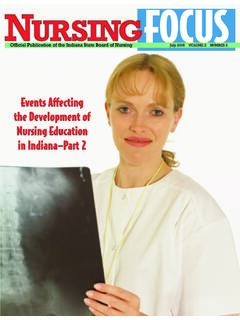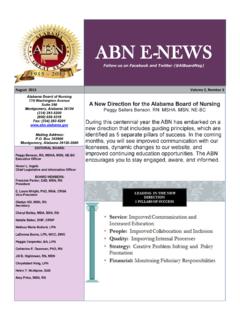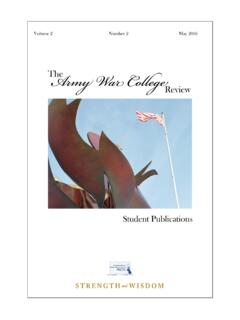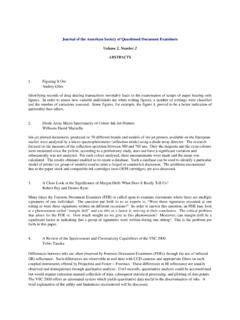Transcription of Volume 2, Number 1 www.ideasthatmatter
1 Volume 2, Number quarterly to stimulate public discourseWHAT S WRONG WITHTHESE PICTURES?IN THIS ISSUE: Report of the C5: HistoricMeeting of Mayors of Canada sHub Cities with Jane Jacobs Defining the Challengeof Urban Canada New Responsibilitiesand Fiscal ReformMontreal s Taxation Pie - 1996% collected by various governments in the City of MontrealWinnipeg s Taxation Pie - 1999% collected by various governments in the City of WinnipegVancouver s Taxation Pie - 1999% collected by various governments in the City of VancouverToronto s Taxation Pie - 2000% collected by various governments in the City of TorontoCalgary s Taxation Pie - 1996% collected by various governments in the City of Calgary2 Volume 2 No. 1 Ideas That MatterVolume 2, Number 1 Executive Publisher:Alan BroadbentEditor:Mary W. to this issue:Taken from transcripts of the C5 meeting ofmayors with Jane Jacobs on May 25-26, 2001in Winnipeg, ManitobaCopyright:All articles the author, 2001 Permission to reproduce should be requestedthrough the information:We want to hear from you.
2 Readers are encour-aged to submit their opinions in letters to theeditor. Published letters may be edited for styleor length. In addition, we welcome articles,and would prefer to receive them in an elec-tronic format. The publisher cannot acceptresponsibility for unsolicited manuscripts : In Canada, $ Cdn (includes GST) forone year. In the US, $32 for one year. Elsewhere, $40 for one 1-800-463-9937in North America,or (519) 376-4233 to subscribe using your cred-it card; otherwise send your cheque or moneyorder in Canadian dollars, payable to IdeasThat Matter, to the address listed below. Orsubscribe on-line at: That MatterTM is a quarterly to stimulatepublic discourse published byThe Ginger Press848 Second Ave EastOwen Sound, Ontario, Canada N4K 2H3P: (519) 376-4233F: (519) 376-9871E: issues will include: Education as a Self-organizing, Complex System Cities and Citizenship Architectural Elements: A Photo Essay A Place, a Purpose and a Seamless Trip The Public Goodplus works-in-progress, book excerpts andrecommendations, interviews, updates and ONE YEAR:in Canada $ (includesGST); in the $32 CDN; elsewhere $40 !
3 Only available by subscription!NameAddressCityProv/StateCo untryPostal/Zip CodeEmailPhoneo Cheque oMoney Order o Visa o MastercardSend payment in CDN funds payable to Ideas That Matter to:Ideas That Matter, 848 Second Avenue EastOwen Sound, Ontario, Canada N4K 2H3Or subscribe on-line at #Expiry Editor s NotesYES, I want to continue receiving Ideas find my payment two days in May of thisyear, Jane Jacobs met with themayors of five of Canada slargest and most economically signifi-cant cities to discuss issues of mutualconcern and importance. This his-toric meeting, known as the C5, wasan outgrowth of a series of discussions,convened by urban advocate, busi-nessman and ITM Executive PublisherAlan Broadbent over a twenty monthperiod, in which Jacobs had C5 meeting was initiated byJacobs as a means of bringing togetherthe leadership from five Canadiancities whose economies she considersto be most at risk because of their out-dated, paternal relationships with senior levels of a September 2000 presentationto a meeting of senior bureaucratsconvened by the Office of the PrivyCouncil, Jacobs had lamented thatCanada was a poor habitat for fos-tering what she defined as creativecities.
4 Ones with vibrant, diverseeconomies that re-create themselvesand generate wealth for redistribu-tion, integrate large numbers of new-comers and act as gateways, or hubs,for interconnected regional eco-nomies. Jacobs stated that Canadahad created too few of these kinds ofurban economies to meet the needs ofa country of this size. More concernedwith economic diversity than geo-graphy, Jacobs identified five ofCanada s cities that come closest tothis definition and invited the mayorsof Vancouver, Calgary, Toronto andMontreal to meet with her and herco-host Glen Murray, the Mayor ofWinnipeg, to initiate discussions shethinks are of critical importance toCanada s future. Each mayor was encouraged tobring a delegation of up to five mem-bers from their community to addbreadth to the discussion of theircity s challenges.
5 Over the two days,the group met as a whole several timesand the mayors met in camera fromtime to time. At the conclusion of thesession on Friday afternoon, the may-ors and Jacobs discussed the tremen-dous challenges current fiscal andgovernance relationships pose fortheir cities. They publicly stated theircommitment to work collaboratively,with other Canadian mayors, andwith the two other levels of govern-ment, for a new deal that empowerscities to manage themselves moreeffectively. The C5 will continue itsdiscussion in Vancouver in January,2002. The following is excerpted fromthe C5 meeting held at the historicFort Garry Hotel in downtownWinnipeg, W. 2001 Volume 2 No. 13 MAYORGLENMURRAY:Alan Broadbent founded theMaytree Foundation and was on thefounding board of the CanadianUrban Institute.
6 He has been afinancier of Jane s work and abuilder of our friendships. He hasbeen a clear and resonant voice inthe debate about urban life in thiscountry since long before it wastrendy. Had he not started bringingtogether much smaller groups ofpeople with great imaginations andhigh hopes, we would not be heretoday. Alan Broadbent is one of theunsung heroes in this country. ALANBROADBENT:The C5 concept grew out of discus-sions we had in the Toronto regionabout what must be done to empow-er Canadian cities. Two years ago, Iconvened a meeting ofexperts to explore theseissues. At the end ofthose two days, abouttwenty-five people con-tinued to meet over thenext year, looking forthe best way to expressconcern about the lackof power of our settled on statingthe basic ideas in aCharter for the TorontoRegion.
7 It was duringthose discussions thatthe idea of a meetingof mayors first cameup; it came up again ata meeting Jane attended in Ottawawith staff from the Privy CouncilOffice. We decided to run with theidea and it has taken since lastSeptember to bring us all role here is as an interested citi-zen who has put some resourcesbehind the C5 effort, in consortwith Jane meeting is a wonderful signof a new era in Canada, when themayors of our major cities begin totake control of the destiny of urbanCanada. Traditionally, mayors haveoften been supplicants before seniorgovernments; their focus was localand the politics in which theyengaged was parochial. The mayorsdelicately managed relationshipswith Ottawa or their provincial cap-ital in order to gain favour on behalfof their city s needs, seldom theirdesires.
8 But something is happening inCanada s cities. Part of it is relatedto what Jane has described. We areno longer an agrarian collection ofprovincial governments. We havebecome a highly urbanized countryin which most citizens live in urbanregions. Another part of the changeis the emergence in our cities ofpolitical leaders with larger visions:politicians with deep experience andbroad sophistication. These mayorshave potent political power. Therecently amalgamated City ofToronto has elected its mayor in twoelections now with more votes thanany politician has ever received in aCanadian election. The about-to-beelected mayor of amalgamatedMontreal will have the same experi-ence. And the situation is the samein our other large mayors have the ability tomobilize political power in ways thatare yet untried for the most part;they can significantly improve theway most Canadians are a citizen interestedin these issues, I see this asthe time when the forcesare beginning to cometogether to align our gov-ernmental arrangementsin Canada with the waythe world actually , powers aremoving up to nationalgovernments and down tolocal governments, partic-ularly on a regional , also increasingly,economic competition isbetween city need greater controlover many of the factorsthat create successful citizens andsocieties.
9 Some of us would go so faras to include education, health care,Alan Broadbent, Chairman, Avana Capital : Historic First Meetingof Canadian Mayorswith Jane Jacobs4 Volume 2 No. 1 and immigration settlement, inaddition to the usual infrastructureelements of you parse through all thearguments about greater control ofdestiny for our large metropolitanregions, you will eventually arrive atthe need for more secure sources ofrevenue. In Canada, on average,cities rely on the property tax for 45percent of operating revenues, withthe rest coming from fees and seniorgovernment grants. In the ,cities receive 15 percent from prop-erty tax, and in Europe it is wellunder 10 percent. The rest comesfrom senior government grants and awhole range of rev-enue tools: shares ofincome tax, consump-tion taxes such as gasor hotel taxes, bondissuance, and localsales tax.
10 These arenot in addition tostate and federaltaxes, but are actualshares of existing taxbases made possiblebecause cities relievesenior governmentsfrom having to dothings, thereby reduc-ing their five mayorsat this C5 meetingknow better than any of us the terri-ble conundrum they face: they areaccountable to large numbers of cit-izens to deliver government and ser-vices, but they control few of thelevers that deliver the goods. It is anunenviable position, having to artic-ulate a vision of the future, as goodleaders must, but lacking the controlto bring that future about with is time in Canada to begin tochange. We need to recognize thatthe urban regions are the principaleconomic, social and culturalengines of our country.









